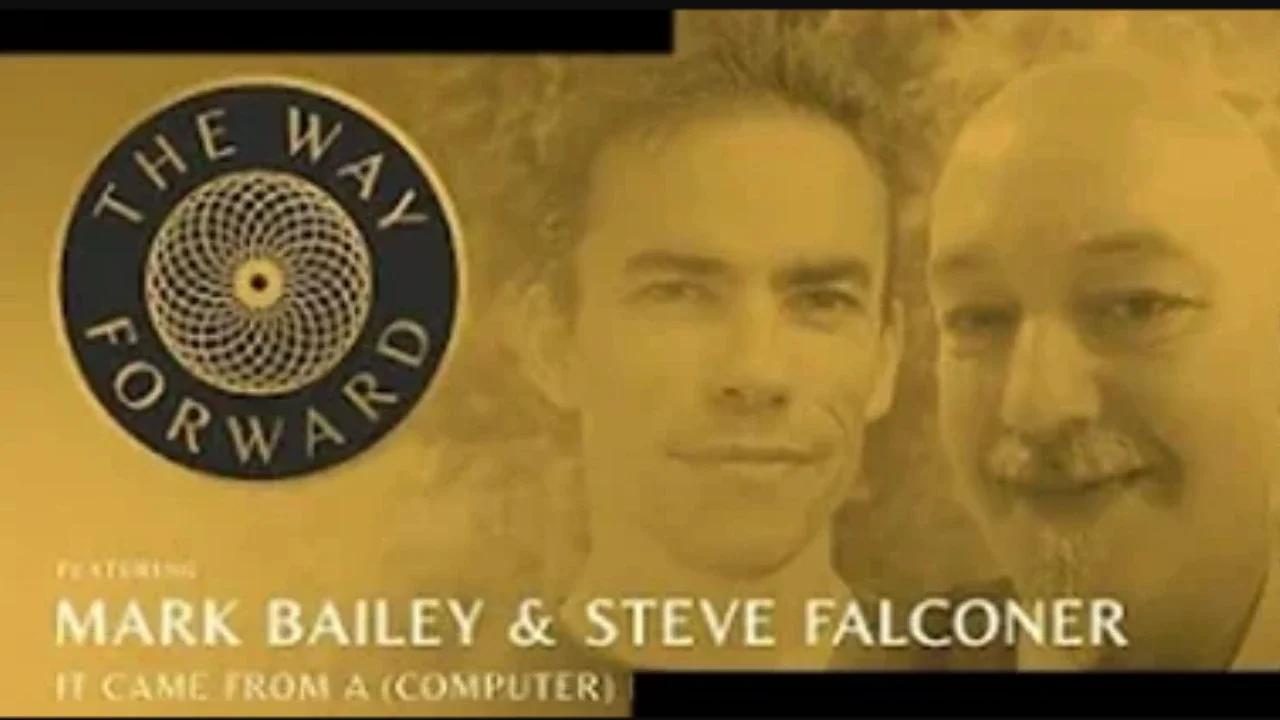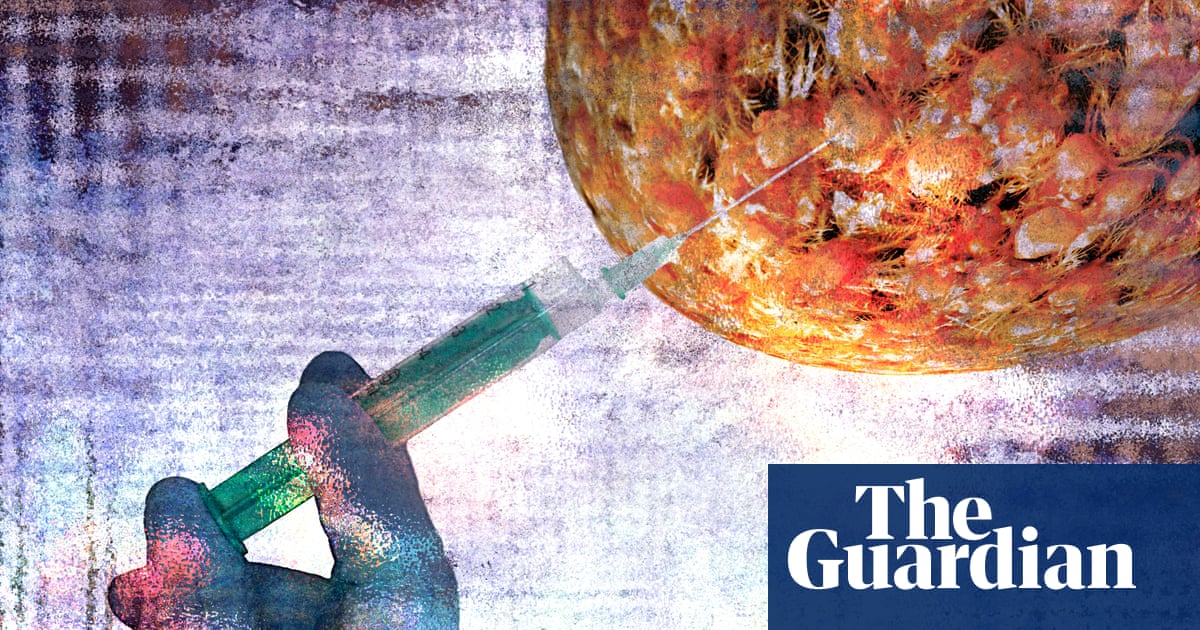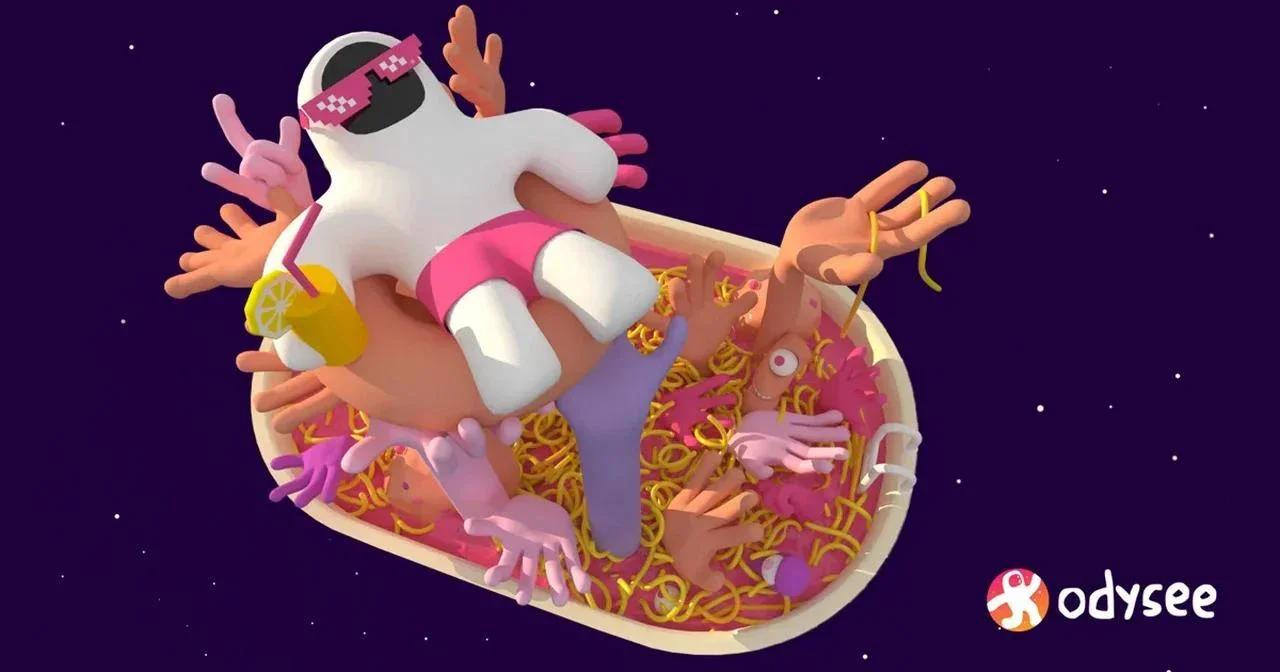He was extremely fit for his age, low BMI (which isn't the state-of-the-art metric anymore if you're staying up on weight and height issues in medicine).
He was closing on 70 years old, if not 70, was still skydiving, was in the Alaska Air Guard, and a pilot (which requires an annual physical, btw).
No tale of wonder. The tale of one of many who died from COVID, and in his case, he thought he was above the laws of nature, disease, probability, legalities, marriage, business partnerships, honesty versus karma, and more.
There are/were millions of COVID deaths with and without comorbidities, however.
There was also a mixed martial arts fighter here, retired from the sport as far as I know, who was in his 40s and healthy, and he died.... from COVID. Last time I mentioned him, those looking to find any reason other than what happened, speculated about steroid use in such athletes. Anything but to accept the fact that COVID killed people, and on a somewhat 'grab-bag' basis in many cases.
Having a comorbidity isn't THE cause in a COVID death where comorbidities are present. The fact is that many/most of those people wouldn't have died when they did of their comorbidities had they not contracted COVID.
It was that uncertainty of 'who gets what and how severely' that really bothered some/most (including many in the medical profession) and for some of those not professionals in the field, fed into the dismissing or minimizing of the illness.
I know that many of you have a mental block about this and are apparently unable to make that math work in your minds. But that's a form of disability as well as somewhat common reaction in the minds of many in my opinion. One that's true to the species. When stress over an unfathomable or unsolvable circumstance arises, that's when delusions set in of a more natural and expected nature. That's a fact in psychology.
Humans don't respond well to unanswerable or unsolvable questions. So, let's hatch a conspiracy that explains it all away.
Simple is as simple does.
-
As of today ICMag has his own Discord server. In this Discord server you can chat, talk with eachother, listen to music, share stories and pictures...and much more. Join now and let's grow together! Join ICMag Discord here! More details in this thread here: here.
You are using an out of date browser. It may not display this or other websites correctly.
You should upgrade or use an alternative browser.
You should upgrade or use an alternative browser.
Have You Been Vaccinated?
- Thread starter Tudo
- Start date
I know a whole bunch of people who were vaccinated who are still here, including myself. He was not vaccinated, nor was the other individual I mentioned, though the second person wasn't a denier, and they're not among us anymore... Both died from COVID.
He was extremely fit for his age, low BMI (which isn't the state-of-the-art metric anymore if you're staying up on weight and height issues in medicine).
He was closing on 70 years old, if not 70, was still skydiving, was in the Alaska Air Guard, and a pilot (which requires an annual physical, btw).
No tale of wonder. The tale of one of many who died from COVID, and in his case, he thought he was above the laws of nature, disease, probability, legalities, marriage, business partnerships, honesty versus karma, and more.
There are/were millions of COVID deaths with and without comorbidities, however.
There was also a mixed martial arts fighter here, retired from the sport as far as I know, who was in his 40s and healthy, and he died.... from COVID. Last time I mentioned him, those looking to find any reason other than what happened, speculated about steroid use in such athletes. Anything but to accept the fact that COVID killed people, and on a somewhat 'grab-bag' basis in many cases.
Having a comorbidity isn't THE cause in a COVID death where comorbidities are present. The fact is that many/most of those people wouldn't have died when they did of their comorbidities had they not contracted COVID.
It was that uncertainty of 'who gets what and how severely' that really bothered some/most (including many in the medical profession) and for some of those not professionals in the field, fed into the dismissing or minimizing of the illness.
I know that many of you have a mental block about this and are apparently unable to make that math work in your minds. But that's a form of disability as well as somewhat common reaction in the minds of many in my opinion. One that's true to the species. When stress over an unfathomable or unsolvable circumstance arises, that's when delusions set in of a more natural and expected nature. That's a fact in psychology.
Humans don't respond well to unanswerable or unsolvable questions. So, let's hatch a conspiracy that explains it all away.
Simple is as simple does.
it is not a conspiracy to point out that they lied. and they still lie.
moose eater
Well-known member
Have you ever lied?it is not a conspiracy to point out that they lied. and they still lie.
not such that it caused mass murder/genocide. or not such that it caused anyone to be led astray. i don't lie to try to lead someone to safety. if them want to self-harm, then, their body, their choice. and all i can do is smh.
Thegreengrower64
Well-known member
Nobody died from covid. Covid does not exist. Never existed, only in the computer modelling does covid run rife. And still to this day a virus hasn't been isolated.
Gunshot deaths = covid
Drug overdose = covid
Driving accidents = covid
And on and on...
And all those that died in the very early days, either died from co-morbidity's or were murdered by ventilators and remdesiver/(usa) madazlolam (uk).
But carry on, "googling" away for your false narrative.
Gunshot deaths = covid
Drug overdose = covid
Driving accidents = covid
And on and on...
And all those that died in the very early days, either died from co-morbidity's or were murdered by ventilators and remdesiver/(usa) madazlolam (uk).
But carry on, "googling" away for your false narrative.
Thegreengrower64
Well-known member

It Came from a Computer Lab featuring Mark Bailey & Steve Falconer
FIND YOUR PEOPLE! Join The Way Forward to connect with like minded men and women near you, businesses near you, and more! The best part? You pay whatever you want!: https://thewayfwrd.com/membership-s...
Thegreengrower64
Well-known member
Thegreengrower64
Well-known member

The Lie Of Virology And The Fraudulent 'Health Freedom' Movement~ With Dr Mark Bailey
The Lie Of Virology And The Fraudulent 'Health Freedom' Movement~ With Dr Mark Bailey.
Greenfingers420UK
Active member
I'm suprised the media didn't use these storiesHe was extremely fit for his age, low BMI (which isn't the state-of-the-art metric anymore if you're staying up on weight and height issues in medicine).
He was closing on 70 years old, if not 70, was still skydiving, was in the Alaska Air Guard, and a pilot (which requires an annual physical, btw).
No tale of wonder. The tale of one of many who died from COVID, and in his case, he thought he was above the laws of nature, disease, probability, legalities, marriage, business partnerships, honesty versus karma, and more.
There are/were millions of COVID deaths with and without comorbidities, however.
There was also a mixed martial arts fighter here, retired from the sport as far as I know, who was in his 40s and healthy, and he died.... from COVID. Last time I mentioned him, those looking to find any reason other than what happened, speculated about steroid use in such athletes. Anything but to accept the fact that COVID killed people, and on a somewhat 'grab-bag' basis in many cases.
Having a comorbidity isn't THE cause in a COVID death where comorbidities are present. The fact is that many/most of those people wouldn't have died when they did of their comorbidities had they not contracted COVID.
It was that uncertainty of 'who gets what and how severely' that really bothered some/most (including many in the medical profession) and for some of those not professionals in the field, fed into the dismissing or minimizing of the illness.
I know that many of you have a mental block about this and are apparently unable to make that math work in your minds. But that's a form of disability as well as somewhat common reaction in the minds of many in my opinion. One that's true to the species. When stress over an unfathomable or unsolvable circumstance arises, that's when delusions set in of a more natural and expected nature. That's a fact in psychology.
Humans don't respond well to unanswerable or unsolvable questions. So, let's hatch a conspiracy that explains it all away.
Simple is as simple does.
GenghisKush
Well-known member
Nobody died from covid. Covid does not exist. Never existed, only in the computer modelling does covid run rife. And still to this day a virus hasn't been isolated.
Gunshot deaths = covid
Drug overdose = covid
Driving accidents = covid
And on and on...
And all those that died in the very early days, either died from co-morbidity's or were murdered by ventilators and remdesiver/(usa) madazlolam (uk).
But carry on, "googling" away for your false narrative.
shiva82
Well-known member
they use the same model when creating a ' story' or narrativeI'm suprised the media didn't use these stories
moose eater
Well-known member
Our local media wrote/produced numerous stories about specific COVID cases here. Including early cases where some received little help, as well as the mixed martial arts fellow I referenced. I may even have one or 2 saved on my desktop on my main computer. Not sure.I'm suprised the media didn't use these stories
This might be almost the stupidest post I've read on here.Nobody died from covid. Covid does not exist. Never existed, only in the computer modelling does covid run rife. And still to this day a virus hasn't been isolated.
Gunshot deaths = covid
Drug overdose = covid
Driving accidents = covid
And on and on...
And all those that died in the very early days, either died from co-morbidity's or were murdered by ventilators and remdesiver/(usa) madazlolam (uk).
But carry on, "googling" away for your false narrative.
moose eater
Well-known member
Almost?This might be almost the stupidest post I've read on here.
Well, Hempy Mcnoodle was a member here at one stage, and there's a couple of others...Almost?
GenghisKush
Well-known member
Good news, everyone!

 www.theguardian.com
www.theguardian.com
Cancer research
Explainer
Andrew Gregory Health editor in Chicago
Thu 30 May 2024 19.01 EDT
What are cancer vaccines?
Cancer vaccines are a form of immunotherapy. Unlike vaccines that protect from an infection, such as the Covid-19 jab, cancer vaccines treat people who already have the disease. They are designed to help the patient’s immune system recognise and then kill cancer cells – and prevent them from coming back.
Doctors have also begun trialling the world’s first personalised mRNA cancer vaccine for melanoma. Experts hailed its “gamechanging” potential to permanently cure the skin cancer. A phase 2 trial found that the vaccines dramatically reduced the risk of the cancer returning in melanoma patients.
There are many challenges, and making personalised jabs for individual patients takes time, but the hope is that the process could speed up in future. Doctors and scientists have been working on cancer vaccines for decades but they have now reached a point where they are seeing real benefits for patients.

What are cancer vaccines and have scientists finally found a cure?
The NHS in England is recruiting for the first large-scale trial of its kind, with hopes high that the personalised jabs could be a gamechanger
Cancer research
Explainer
What are cancer vaccines and have scientists finally found a cure?
The NHS in England is recruiting for the first large-scale trial of its kind, with hopes high that the personalised jabs could be a gamechangerAndrew Gregory Health editor in Chicago
Thu 30 May 2024 19.01 EDT
What are cancer vaccines?
Cancer vaccines are a form of immunotherapy. Unlike vaccines that protect from an infection, such as the Covid-19 jab, cancer vaccines treat people who already have the disease. They are designed to help the patient’s immune system recognise and then kill cancer cells – and prevent them from coming back.
How are cancer vaccines made?
The jabs are custom built for each person, typically in just a few weeks. To make them, a sample of a patient’s tumour is removed during surgery, followed by DNA sequencing and in some cases the use of artificial intelligence. The result is a personalised anti-cancer jab specific to that patient’s tumour.How do they help fight cancer?
The cancer vaccines work by sending an instruction or blueprint to the patient’s cells to produce an antigen or protein that can distinguish cancer cells from normal cells. The jabs stimulate the immune system to act. The immune system makes antibodies that can recognise and attack the harmless versions of the disease. Once the patient’s body has made these antibodies it can recognise the disease if returns.What types of cancer can they treat?
Scientists are studying many different types of cancer vaccines and how they might work in different forms of cancer. More research is needed to get a full picture of how well the vaccines work and which cancers they could treat. Experts believe they could be effective in a range of cancers, including but not limited to colorectal, lung, bladder, pancreatic and kidney.Doctors have also begun trialling the world’s first personalised mRNA cancer vaccine for melanoma. Experts hailed its “gamechanging” potential to permanently cure the skin cancer. A phase 2 trial found that the vaccines dramatically reduced the risk of the cancer returning in melanoma patients.
How can people access cancer vaccines?
Research is still at an early stage, so the jabs are mainly available as part of clinical trials. The NHS is launching a scheme that will give thousands of patients in England access to cancer vaccine trials.What is the Cancer Vaccine Launch Pad?
The NHS scheme in England is the first of its kind worldwide. It aims to recruit thousands of cancer patients, with a matchmaking service putting them into clinical trials of the jabs that could help them.When will it begin recruiting?
It already has. The first NHS patient to join the Cancer Vaccine Launch Pad is Elliot Pfebve, a 55-year-old lecturer who had no symptoms and was diagnosed with colorectal cancer after a routine health check.How did doctors create this personalised vaccine?
First, Pfebve had surgery to remove his tumour, followed by chemotherapy. His personalised vaccine was created by analysing his tumour to identify mutations specific to his own cancer. He then received his jab via an infusion at University Hospitals Birmingham NHS foundation trust, one of several sites taking part in a BioNTech colorectal cancer vaccine trial. It was designed with the same mRNA technology used to create the Pfizer/BioNTech Covid vaccine.How is the patient doing?
The principal investigator for the trial in Birmingham, Dr Victoria Kunene, said it was too early to say if the patient had been cured completely, but said she was “extremely hopeful”. “Based on the limited data we currently have of the in-body response to the vaccine, this could prove to be a significant and positive development for patients, but more data is yet needed and we continue to recruit suitable patients to the trial to establish this further,” she said.How can I sign up?
The NHS has already enlisted dozens of patients to its Cancer Vaccine Launch Pad and will now accelerate recruitment, with thousands being offered access to cancer vaccine trials each year. Cancer patients can talk to their GP about whether they may be eligible to join the trials.How significant is the arrival of cancer vaccines?
Vaccines have revolutionised medicine, protecting millions of people from measles and mumps, polio and coronavirus. They have also wiped out smallpox, one of the deadliest diseases in human history. Now experts believe they can form part of the toolbox needed to fight off cancer for good. They will not replace surgery, chemotherapy or radiotherapy any time soon but could play a key role in immunotherapy, the fourth weapon against cancer.There are many challenges, and making personalised jabs for individual patients takes time, but the hope is that the process could speed up in future. Doctors and scientists have been working on cancer vaccines for decades but they have now reached a point where they are seeing real benefits for patients.
Good news, everyone!

What are cancer vaccines and have scientists finally found a cure?
The NHS in England is recruiting for the first large-scale trial of its kind, with hopes high that the personalised jabs could be a gamechangerwww.theguardian.com
Cancer research
Explainer
What are cancer vaccines and have scientists finally found a cure?
The NHS in England is recruiting for the first large-scale trial of its kind, with hopes high that the personalised jabs could be a gamechanger
Andrew Gregory Health editor in Chicago
Thu 30 May 2024 19.01 EDT
What are cancer vaccines?
Cancer vaccines are a form of immunotherapy. Unlike vaccines that protect from an infection, such as the Covid-19 jab, cancer vaccines treat people who already have the disease. They are designed to help the patient’s immune system recognise and then kill cancer cells – and prevent them from coming back.
How are cancer vaccines made?
The jabs are custom built for each person, typically in just a few weeks. To make them, a sample of a patient’s tumour is removed during surgery, followed by DNA sequencing and in some cases the use of artificial intelligence. The result is a personalised anti-cancer jab specific to that patient’s tumour.
How do they help fight cancer?
The cancer vaccines work by sending an instruction or blueprint to the patient’s cells to produce an antigen or protein that can distinguish cancer cells from normal cells. The jabs stimulate the immune system to act. The immune system makes antibodies that can recognise and attack the harmless versions of the disease. Once the patient’s body has made these antibodies it can recognise the disease if returns.
What types of cancer can they treat?
Scientists are studying many different types of cancer vaccines and how they might work in different forms of cancer. More research is needed to get a full picture of how well the vaccines work and which cancers they could treat. Experts believe they could be effective in a range of cancers, including but not limited to colorectal, lung, bladder, pancreatic and kidney.
Doctors have also begun trialling the world’s first personalised mRNA cancer vaccine for melanoma. Experts hailed its “gamechanging” potential to permanently cure the skin cancer. A phase 2 trial found that the vaccines dramatically reduced the risk of the cancer returning in melanoma patients.
How can people access cancer vaccines?
Research is still at an early stage, so the jabs are mainly available as part of clinical trials. The NHS is launching a scheme that will give thousands of patients in England access to cancer vaccine trials.
What is the Cancer Vaccine Launch Pad?
The NHS scheme in England is the first of its kind worldwide. It aims to recruit thousands of cancer patients, with a matchmaking service putting them into clinical trials of the jabs that could help them.
When will it begin recruiting?
It already has. The first NHS patient to join the Cancer Vaccine Launch Pad is Elliot Pfebve, a 55-year-old lecturer who had no symptoms and was diagnosed with colorectal cancer after a routine health check.
How did doctors create this personalised vaccine?
First, Pfebve had surgery to remove his tumour, followed by chemotherapy. His personalised vaccine was created by analysing his tumour to identify mutations specific to his own cancer. He then received his jab via an infusion at University Hospitals Birmingham NHS foundation trust, one of several sites taking part in a BioNTech colorectal cancer vaccine trial. It was designed with the same mRNA technology used to create the Pfizer/BioNTech Covid vaccine.
How is the patient doing?
The principal investigator for the trial in Birmingham, Dr Victoria Kunene, said it was too early to say if the patient had been cured completely, but said she was “extremely hopeful”. “Based on the limited data we currently have of the in-body response to the vaccine, this could prove to be a significant and positive development for patients, but more data is yet needed and we continue to recruit suitable patients to the trial to establish this further,” she said.
How can I sign up?
The NHS has already enlisted dozens of patients to its Cancer Vaccine Launch Pad and will now accelerate recruitment, with thousands being offered access to cancer vaccine trials each year. Cancer patients can talk to their GP about whether they may be eligible to join the trials.
How significant is the arrival of cancer vaccines?
Vaccines have revolutionised medicine, protecting millions of people from measles and mumps, polio and coronavirus. They have also wiped out smallpox, one of the deadliest diseases in human history. Now experts believe they can form part of the toolbox needed to fight off cancer for good. They will not replace surgery, chemotherapy or radiotherapy any time soon but could play a key role in immunotherapy, the fourth weapon against cancer.
There are many challenges, and making personalised jabs for individual patients takes time, but the hope is that the process could speed up in future. Doctors and scientists have been working on cancer vaccines for decades but they have now reached a point where they are seeing real benefits for patients.
shiva82
Well-known member
have a look . lets hear these 'stories' .Our local media wrote/produced numerous stories about specific COVID cases here. Including early cases where some received little help, as well as the mixed martial arts fellow I referenced. I may even have one or 2 saved on my desktop on my main computer. Not sure.



